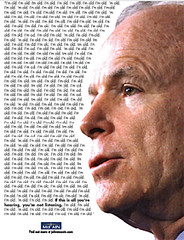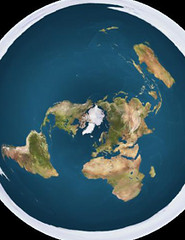J.W. Sass, vice president of business development with Myxer, seemingly inspired by “The Future of Social Media: Hope or Hype?” by Jason Falls, wrote his own post declaring “Social Media is NOT an Industry.” Sass further expands on the idea in his comments, saying that social media is core communication, a sharing and feedback process widely used for both personal and business exchanges, internally and externally.
He might be right. Maybe social media is not an industry.
It might be emerging as a field of specialization, which addresses Falls’ comment that “… I do think there will always be specialists, always be conferences, always be professional development groups and opportunities relative to social media and, thus, there will be an "industry" around it. But until social media, the practice or the tools, are ubiquitous and universal, there are people (like me) who make a living doing it. Thus, an industry does exist.” Possibly, but probably not.
Sure, we could take the broadest definition of an industry — the category describing a company's primary business activity — and make it stick. But we could apply that definition to any number of services and claim those are industries too, even if they are not.
Writing, for example, is generally not considered an industry even though it also passes the broadest definition. Instead, writing is generally assigned as something one does for another industry — advertising, publishing, film, etc. Likewise, graphic design is generally not regarded as an industry. Acting does not seem to be an industry unto itself. Web site development isn’t really an industry.
For social media to become an industry, I imagine it would have to demonstrate its fundamental uniqueness of service much like advertising did in the 1920s and public relations did in the 1950s. That seems unlikely to me as advertising, public relations, marketing, publishing, and even IT all have an increasing stake in it and communication continues to trend toward integration.
Does this preclude social media specialists? Not at all. Does this censor some experts from promoting it as an industry? Absolutely not. Does it mean mainstream media will eventually succumb to being part of something it once loathed, simply because it moved into this space as its most viable means of self-presevation? Yeah, right.
But there is something else. Does social media even want to grow up into its own industry? After all, becoming an industry usually involves corralling a discipline, which almost seems contrary to the freedoms that seem to be pushing it forward.

He might be right. Maybe social media is not an industry.
It might be emerging as a field of specialization, which addresses Falls’ comment that “… I do think there will always be specialists, always be conferences, always be professional development groups and opportunities relative to social media and, thus, there will be an "industry" around it. But until social media, the practice or the tools, are ubiquitous and universal, there are people (like me) who make a living doing it. Thus, an industry does exist.” Possibly, but probably not.
Sure, we could take the broadest definition of an industry — the category describing a company's primary business activity — and make it stick. But we could apply that definition to any number of services and claim those are industries too, even if they are not.
Writing, for example, is generally not considered an industry even though it also passes the broadest definition. Instead, writing is generally assigned as something one does for another industry — advertising, publishing, film, etc. Likewise, graphic design is generally not regarded as an industry. Acting does not seem to be an industry unto itself. Web site development isn’t really an industry.
For social media to become an industry, I imagine it would have to demonstrate its fundamental uniqueness of service much like advertising did in the 1920s and public relations did in the 1950s. That seems unlikely to me as advertising, public relations, marketing, publishing, and even IT all have an increasing stake in it and communication continues to trend toward integration.
Does this preclude social media specialists? Not at all. Does this censor some experts from promoting it as an industry? Absolutely not. Does it mean mainstream media will eventually succumb to being part of something it once loathed, simply because it moved into this space as its most viable means of self-presevation? Yeah, right.
But there is something else. Does social media even want to grow up into its own industry? After all, becoming an industry usually involves corralling a discipline, which almost seems contrary to the freedoms that seem to be pushing it forward.



















